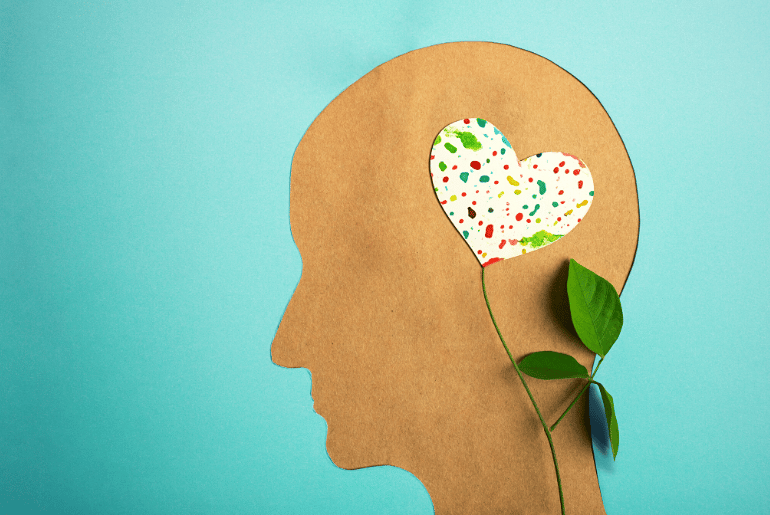Mental health is something that a lot of people struggle with but seldom talk about. This year, let’s change that. It’s time to start talking openly about mental health so that you can improve it. The good news is that there are many ways how you can do this.
But first, let’s define mental health so that we are on the same page…
What is Mental Health?
Mental health refers to your emotional, psychological, and social well-being. It is the way how you think, feel, and act.
And from a broader term, mental health also includes how you handle stress, connect and relate to others, and even make choices in life.
Mental health is one of the most important aspects of life, but unfortunately, most people don’t talk about mental health.
Over the course of your life, from childhood to adulthood, your mental health can be affected by many things, including…
- Biological factors such as genes or brain chemistry
- Life experiences you have gone through, both good and bad
- Your lifestyles such as your diet and physical activity
- Influences from family members and friends
- Etc.
So, what should you do if you suffer from mental health and how can you improve it? Well, here are the 7 ways…
1. Educate Yourself More on Different Mental Health Issues

Let’s face it – many people do not know enough about mental health. And to properly tackle the situation, you should make it a goal to learn more about different mental health issues.
Read books, articles, and blog posts on the topic. Watch documentaries and films that discuss mental health.
The more you know about mental health, the better equipped you will be to deal with any issues that come up.
Also, you’ll be able to recognize the signs of mental illness in yourself and others, which is important. For example, you’ll see that your fear of public speaking is normal, but your fear of leaving your house is not and can be a sign of deeper issues.
2. Seek Help If You Need It

If you are struggling with your mental health, do not be afraid to seek help. This can be in the form of therapy, medication, or both.
Sometimes all we need is someone to talk to who will understand us and help us through our problems. So if you feel like you need help, there is a combination of treatments that can be very effective. For example, cognitive behavioral therapy has been shown to be helpful for many people struggling with mental health issues.
Or, if you have a chemical imbalance, medication can be very helpful in restoring balance. Reach out to a mental health professional to see what would work best for you.
3. Ditch the Stress

One of the biggest enemies of good mental health is stress. For this reason, it is important to find ways to reduce the amount of stress in your life.
If you’re constantly stressed, it can lead to anxiety and depression. So take a look at your life and try to identify the sources of your stress. Once you know what is causing your stress, you can begin to work on eliminating it.
This may mean saying no to some low-quality commitments, delegating more, or taking some time for yourself each day to relax and de-stress.
We realize that it’s easier said than done to just eliminate stress, but it is important to at least try to figure out what is causing it and work on reducing it.
If you want to learn how to relieve stress, check out this article on Healthline.com.
4. Find a Hobby

Another great way to improve your mental health is to find a hobby that you enjoy. Doing something that you love can help reduce stress, increase happiness, and give you a sense of purpose.
According to Kettering University Online, hobbies are a great way to disconnect from work and break away from the monotony of daily schedules. Hobbies can also work as a great stress reliever.
It can also be a great way to meet new people and connect with others who have similar interests. So if you don’t have a hobby yet, now is the time to find one.
It doesn’t matter what it is – as long as you enjoy it and it makes you feel good. For example, you could try painting, hiking, biking, cooking, or anything else that sounds fun to you.
5. Let Family and Friends Help You

One of the best things about having family and friends is that they can be there for you when you need them. So if you’re struggling with your mental health, don’t be afraid to reach out to your loved ones. They can provide support, love, and understanding.
Sometimes all we need is to know that we’re not alone. So if you’re feeling down, give your family or friends a call. Or, if you prefer, you could write them a letter or email. Just letting them know what’s going on can be a huge help.
Studies have shown that having supportive relationships is a strong protective factor against mental illnesses and helps to increase your mental well-being.
If you look at Maslow’s Hierarchy of Needs, after basic physiological (air, water, food, etc.) and safety needs (safe environment, employment, etc.) are met, the next thing we seek is social needs.
We want to feel a sense of belonging to a larger social group and feel connected with our family and friends.
6. Stay Active

Most people thought that exercise is just a good way to keep fit and healthy. But do you know that exercise is also good for your mental health?
I believe you understand that staying active is a key factor that can help you improve your mental health. The problem is that most people don’t have time for regular exercise.
This article states that exercise can help you sleep better, and lower your chances of depression, anxiety, and ADHD. When you exercise, your brain releases hormones called endorphins that make you ‘feel good’. In short, exercise boosts your overall well-being.
The only problem is most people can’t find time to exercise. Turns out, you don’t need to exercise for an hour or two. A quick 10-minute workout is more than enough. Just like Today.com suggested:
“Start with a quick two-minute warm-up (like a light jog) and then do a few minutes of intervals like sprinting for one minute, jogging for three, sprinting for another minute, and jogging for three. You can do this on the elliptical, running in place, on a spin bike or outside.”
7. Believe in Yourself

Finally, it is important to believe in yourself. This may sound cliché, but it is true. If you don’t believe in yourself, it will be very difficult to improve your mental health. So, make this year the year that you start to believe in yourself.
Here are 2 guides you should read:
- Why It is Important to Believe in Yourself
- How to Believe in Yourself to Achieve Your Goals and Dreams
For instance, you can start by setting some small goals that you know you can achieve. For example, this can be something as simple as taking a walk every day or trying a new hobby.
As you accomplish these goals, your self-confidence will begin to grow. And as your self-confidence grows, so will your mental health. Hence, believe in yourself and know that you can achieve anything you set your mind to.
Conclusion
Mental health is just as important as physical health, and it should be taken just as seriously. If you are struggling with your mental health, don’t be afraid to seek help. There are a variety of treatments that can be very effective.
You can also try reducing stress, finding a hobby that you enjoy, and letting family and friends help you. Most importantly, believe in yourself and know that you can achieve anything you set your mind to. And don’t forget to exercise regularly.







